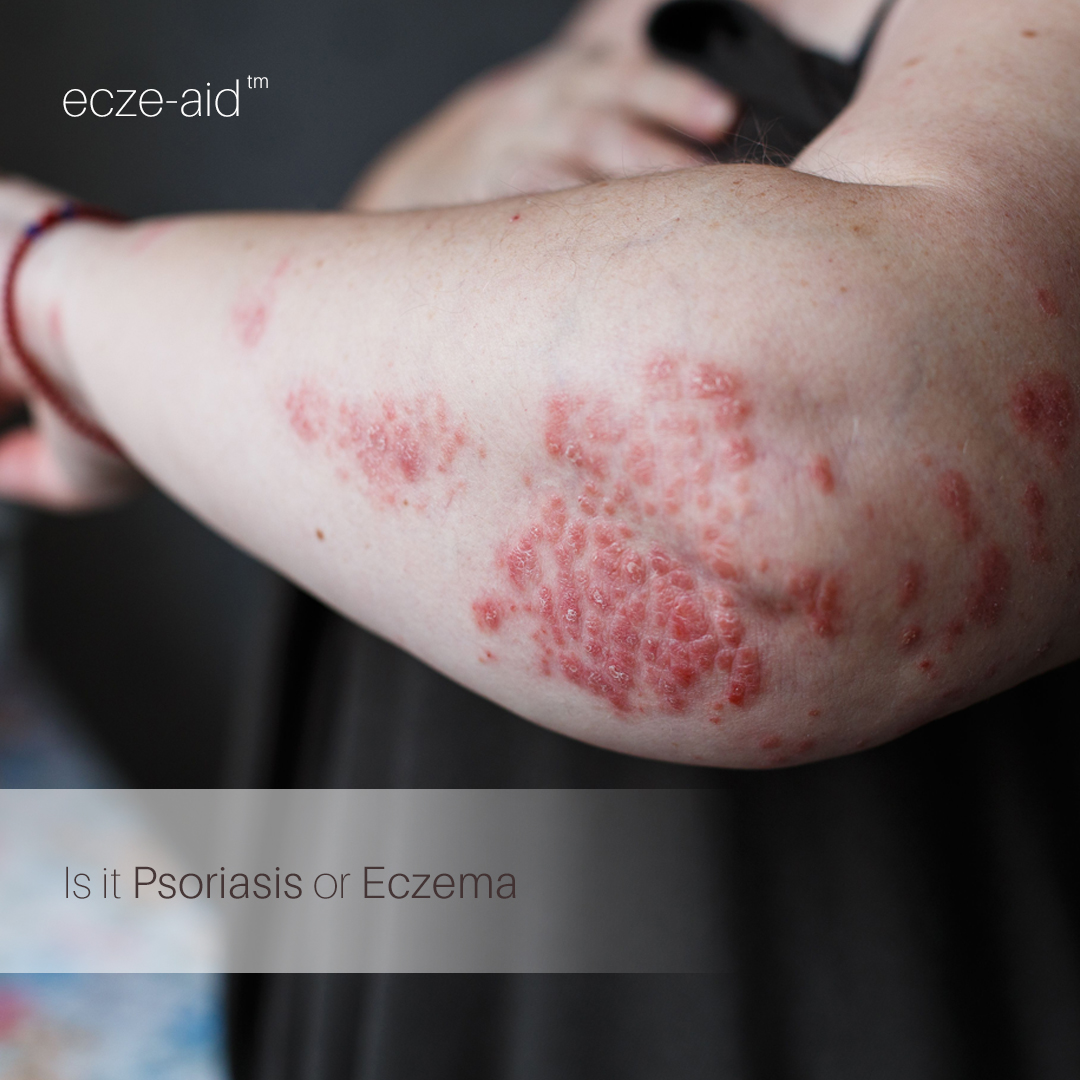When you see patches of red, raised skin on certain area of your body and it feels extremely itchy, the first thought that comes to your mind may be “It’s Eczema”. But wait, there’s another skin condition that may have very similar symptoms, that is, Psoriasis. Although eczema can be a more predominant skin problem as compared to psoriasis, the risk of getting either condition is still quite high.
As both eczema and psoriasis can cause a rash [red bumps and patches] and itching, and can appear on similar parts of the body including hands, scalp, elbow and knees, it can be quite difficult to differentiate between the two. A skin specialist may be able to tell the difference, but for non-expert with untrained eyes, it’s hard to identify whether it’s psoriasis or eczema.
Here’s a guide to help you spot the difference between eczema and psoriasis:
Psoriasis is an Auto-Immune Disease
The main difference between psoriasis and eczema is the root cause to these conditions. When a person’s immune system is dysfunctional and activates skin cells to grow faster than they normally should, it causes cells to build up on top of the skin, forming layers of white scaly patches on the skin.
Eczema is caused by external factors and genetic factor
Eczema is normally caused by exposure to irritants [substance that causes burning, itching or redness, e.g., chemicals in skincare and laundry detergents], pathogens [organism/ bacteria that causes disease], and allergens [most often eaten or inhaled, which is recognized by the immune system and causes an allergic reaction, e.g., dairy products, eggs, gluten]. It can also be hereditary, meaning that if either parent or both parents have eczema, the risk of their children getting eczema is much higher.
Difference in the Level of Itchiness
Psoriasis tends to cause milder itching [but in some less common type of psoriasis, it may cause a terrible burn]. Meanwhile, the itching caused by eczema is extremely intense, and when the condition becomes more severe, frequent scratching of the skin can lead to bleeding.
Different Favorite Spots
Although both eczema and psoriasis can appear in any parts of the body, they still have their favorite spots. Psoriasis is more likely to appear on the scalp, elbows, knees, buttocks and face. Eczema can appear in those similar parts too, but most of the times, it will inflame the skin on the back of the knees or the inside of the elbows.
Sunlight can offer some help to psoriasis, but not eczema
For most psoriasis sufferers, natural ultraviolet B [UVB] light from sun rays can slow down the abnormal growth of skin cells [also used as a medical treatment for psoriasis]. [Caution: Over-exposure or long period of exposure to sunlight can trigger psoriasis symptoms too]. On the contrary, people with eczema are sensitive to heat, as overheating causes perspiration [sweating] which can cause flare ups or make the existing condition worse.
Some of the similar treatments for eczema and psoriasis include topical creams, phototherapy, biologics [medications that can target the protein that induce inflammation response, usually through injection or intravenous [IV] infusion], systemics [oral medications to control immune system response and reduce inflammation for severe condition].

